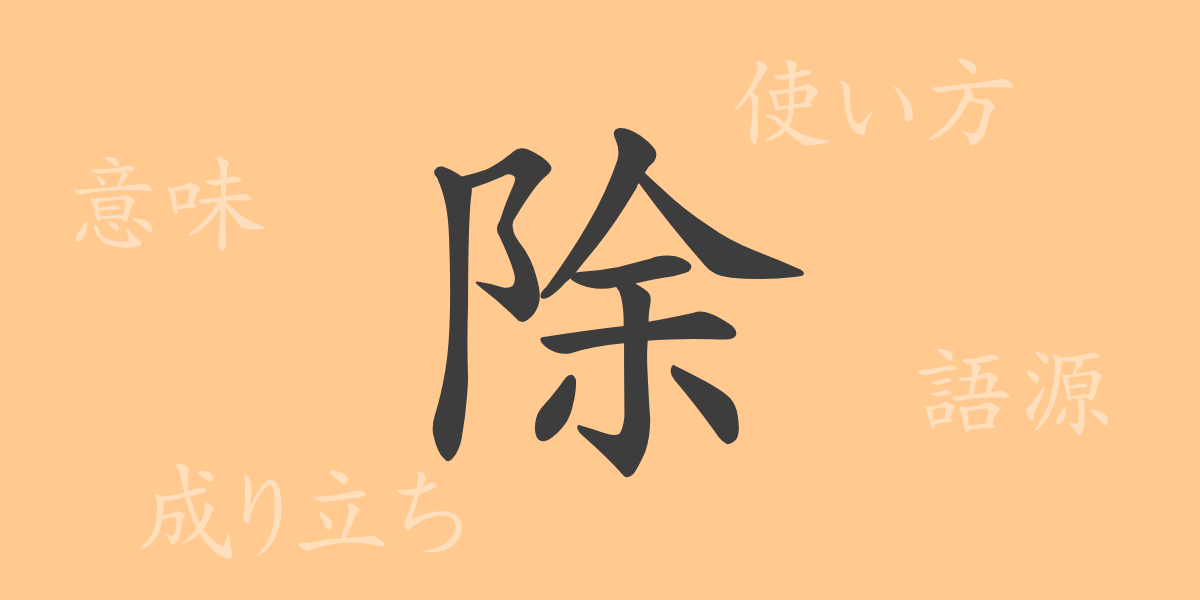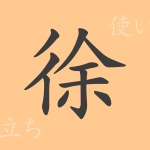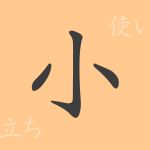Japanese is rich in Kanji, each possessing its unique history and meaning. ‘除’ (じょ) is no exception, frequently used in daily life but rarely explored in depth. This article delves into the etymology of ‘除’, its meanings, usages, and related phrases and idioms, offering a deep dive into the profound aspects of this Kanji.
Origins of 除 (じょ)
The Kanji ‘除’ originated in ancient China, derived from pictographic characters. Initially representing a tool shaped like a ‘ほこ’ to remove weeds, it evolved to express the concept of removing or eliminating something. This character has come to mean removing or excluding, and is used extensively in various words and expressions.
Meaning and Usage of 除 (じょ)
The primary meanings of ‘除’ include ‘to remove’ and ‘to exclude’. However, its application varies widely. For example, it can refer to removing physical obstructions like in ‘障害を除く’ (しょうがいをのぞく) or snow in ‘除雪’ (じょせつ), as well as abstract concepts or people as in ‘心配事を除く’ (しんぱいごとをのぞく) or ‘除名’ (じょめい). It also appears in unique cultural expressions like ‘除夜の鐘’ (じょやのかね).
Readings, Stroke Count, and Radical of 除 (じょ)
Understanding the readings and structure of ‘除’ is essential.
- Readings: The on’yomi (Sino-Japanese reading) is ‘ジョ’, and the kun’yomi (native Japanese readings) are ‘のぞく’ and ‘よける’.
- Stroke Count: ‘除’ consists of 10 strokes.
- Radical: The radical of ‘除’ is ‘阜’ (こざとへん).
Phrases, Idioms, and Proverbs Using 除 (じょ) and Their Meanings
Phrases, idioms, and proverbs that include ‘除’ play significant roles in Japanese language. Here are some examples:
- 除夜の鐘 (じょやのかね): The New Year’s Eve bell that is believed to rid the year of sins and impurities.
- 除籍 (じょせき): To remove a name from a register or list.
- 除霜 (じょそう): The act of removing frost.
- 障害を除く (しょうがいをのぞく): To remove an obstacle or problem.
- 除名 (じょめい): To expel someone from an organization.
These expressions are used in daily life, specific cultural events, and organizational procedures.
Conclusion on 除 (じょ)
The Kanji ‘除’ is extremely versatile due to its various meanings and applications, frequently used to express the concept of removing both physical objects and abstract ideas. It also features in culturally significant idioms and phrases, making it an indispensable element of the Japanese language. Through this article, we hope you have gained a deeper understanding of ‘除’ and can appreciate the richness of Japanese expressions even more.

























